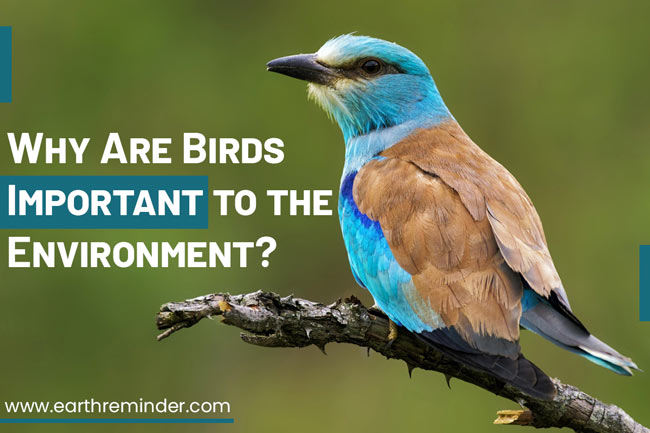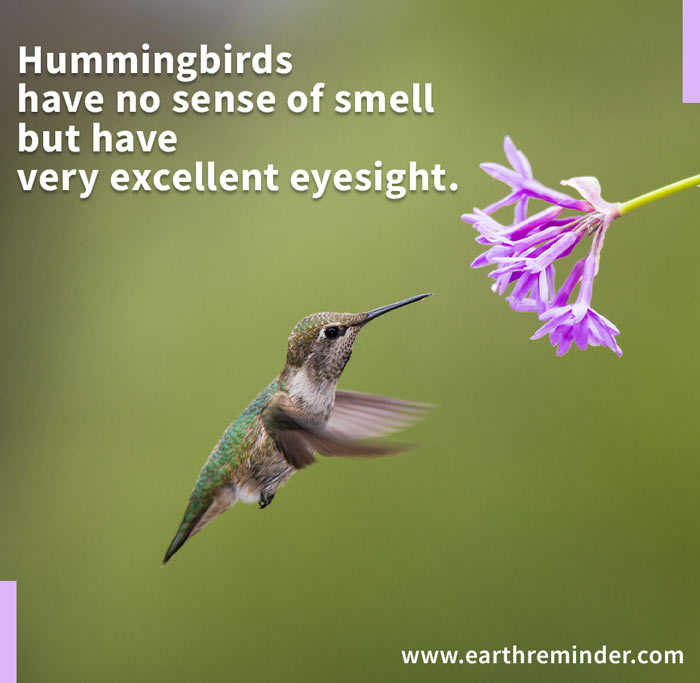Why Are Birds Important to the Environment?
Birds are magnificent creatures and full of grace and beauty. They are a huge source of inspiration for many, including notable personalities like the Wright Brothers. Wright Brothers invented the first airplane because of Birds. Birds also nurture the environment around them and are crucial in the proper balancing of the ecosystem. Let us find out more about why birds are important to the environment.
Table of Contents
- 1 Why Are Birds Important?
- 1.1 Bird Droppings Are Useful for Plant Growth
- 1.2 Coral Reef Growth
- 1.3 Birds Help in Pest Control
- 1.4 Scavenging Birds Clean the Environment
- 1.5 Birds Help in Seed Dispersing and Pollination
- 1.6 Birds Help in Recycling of Nutrients
- 1.7 Birds Are Important in the Formation of New Soil
- 1.8 Birds Take Part in Building Up of New Ecosystem
Why Are Birds Important?
Birds help in many ways. Let us discuss how do birds help the environment in detail.
Bird Droppings Are Useful for Plant Growth
The correct term for bird droppings is “guano”. For most people, bird droppings are a form of nuisance. For some, it’s a sign from the universe that something wonderful is about to happen! The truth is that something wonderful does happen, but not in the way one might expect.
Bird droppings consist of many plant nutrients; such as nitrogen and phosphorous. Bird droppings are beneficial for plant growth. These nutrients make great fertilizers, as they increase the quality of soil and its water holding capacity.
A common misconception is that tossing lots of bird guano into the soil will make it rich in quality. That’s not true, and instead may be counter productive. Composting the guano before adding it to the soil is the best way to make use of the droppings.
Coral Reef Growth
Seabird’s guano is more useful than other birds. They produce comparatively larger amounts of guano than other birds. These droppings land in water bodies and run into coral reef systems. Coral reefs are spread across the globe, with very few nutrients deposited in them. Bird droppings, being rich in nutrients, help in fertilizing the coral reefs. Therefore, Birds help the environment in many amazing ways.
Birds Help in Pest Control
Let’s look at some data to understand better why birds are important in pest control:
- Birds reduced corn insect pests by 34–98% in various studies.
- It has been confirmed that birds reduce 20–26% of grasshoppers in crops, according to some reports.
- Releasing wild falcons in New Zealand vineyards led to decreasing pest bird damage. This resulted in massive amounts of savings of grapes and red wine.
- A workplace in-charge of keeping levees structurally sound, reported substantially less damage from ground squirrels and gophers in areas with Barn Owl nest boxes and raptor perches, than in areas treated with rodenticides.
- Birds are massive consumers of insects and other havoc causing pest animals. Studies have shown that birds eat as many as 4,50,000 kilograms of bugs in a single year. Beneficial birds assist with crop production in an eco-friendly manner, unlike artificial substitutes such as pesticides.
If we give them shelter and some food, birds boost their free of charge pest control services! Some birds act beneficially or as pests, but species switch roles depending on the season and food sources available.
Farmers can support the birds in the beneficial phases, and keep them at bay or co-exist with them at other times. Smart growers take the benefits that the birds provide and discourage damage from pest birds.
Some birds are very useful during the nest-building season because they feed pest insects to their nestlings. They continue to be beneficial throughout the year, but some may develop a liking for plant-based foods later in the year.
Unfortunately, farmers usually know only about the birds that cause damage. The beneficial ones are sometimes considered pests too and deterred. Considerable loss occurs for some crops, but the benefits of the free pest control services provided by birds are rarely acknowledged.
Scavenging Birds Clean the Environment
Scavenging birds are many times seen through eyes of disgust by most people. However, these birds are necessary for the proper working of natural and urban ecosystems.
These birds consume decomposing flesh of animals that have died, except for those killed by other birds. Eagles are special in the fact that they may also hunt, along with eating dead meat.
Scavenging birds have an amazing digestive system. Unlike other animals, their stomach can digest massive amounts of meat and flesh. This characteristic ability is thanks to the highly acidic juices present in their systems, which digest proteins very quickly.
Vultures are considered to be the best scavengers. They feed on carcasses that are in a more advanced state of decay than other scavengers can handle. A vulture’s acid-filled stomach destroys many of the bacteria. They also destroy toxins associated with rotting meat and pathogenic bacteria that may have been the cause of death. Hence, vultures also help to prevent the spread of disease.
Eagles faces and intestines are full of bacteria that is toxic to most other creatures. But these birds of prey have developed themselves in a way that they don’t get sick from feasting on rotting flesh.
Marabou Storks eat mainly carrion but their bills are unsuitable for tearing open carcasses. They then wait for other scavengers like the Spotted Hyenas to open the carcass.
Birds Help in Seed Dispersing and Pollination
Pollination is an irreplaceable step in the reproduction of seed plants. In this process, pollen grains reach a plant. Bees and insects are the most common pollinators, but bats and birds are important too.
Hummingbirds, spiderhunters, and honeyeaters are common birds that pollinate flowers. Plants pollinated by birds often have bright colored petals and little scents. This is because birds have a strong sight for colour, but barely any sense of smell.
Hummingbirds are tiny birds that are found only in North America. They can stay in the air for very long duration since they flap their wings up to eighty times/second. This, along with their long beaks and fascination with nectar, makes them excellent pollinators.
Birds Help in Recycling of Nutrients
Birds are drivers of nutrients across ecosystems. The fact that so many bird species across the world migrate across vast distances each year proves it. These birds are in such large numbers that not even scientists can tell us how many birds are there exactly!
However, we can guess that around one billion birds consume billions of tons of food. This food that is eaten is essentially converted from its complex form to a simple, nutrient form.
Plants absorb the birds guano and waste, to utilize the nutrients and turn them into different forms of use for growth. This leads to better rates of photosynthesis by the plants and increased quality of growth too.
Birds that primarily consume fish have nutrients from aquatic environments. They then transfer it to terrestrial ones. Since migration can be across very long distances, food consumed in some part of the world is excreted out in another. This particular fact makes birds extremely important in global and local level cycling of nutrients.
Birds Are Important in the Formation of New Soil
Since there are so many birds out there, it is obvious that a vast number of them die each year too. Their bodies have a lot of nutrients and organic material.
The ground, i.e., the soil, absorbs the nutrients with the help of bacteria. The bodies get decomposed into the soil, and finally, become a part of the soil.
Birds also shed their feathers throughout their lifetime. The feathers are again composed of organic material and decompose into the soil. They also bring materials like wood, hay, and similar nest-building material which goes back to the earth in the long term.
Birds are excellent mediums of transfer of organic material, and that’s precisely what makes the soil beneath us richer.
Birds Take Part in Building Up of New Ecosystem
Who knew birds could be engineers too? Birds are very talented in creating new structures in their environments. These structures are useful to them for some time, but if one looks at the wider picture – they’re useful for other organisms too.
Importance of birds in ecosystem: Birds are important for the ecosystem as they create many nests, tree holes, and even burrows in their lifetime. Once they pass away, these structures can be used to provide shelter for other animals.
Conclusion:
Birds are inherently beautiful creatures, but once you delve deeper into their habits and curious nature, you will find that they are the environment’s best helpers. From building up nests to pollinating flowers and even creating creative structures in the ecosystem. Hence, the importance of birds is there in every stage of life.

